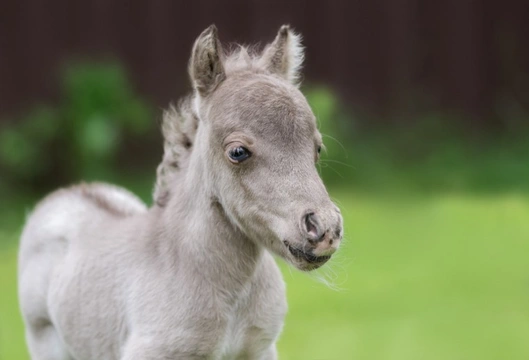
What impact could the Coronavirus have on my horse?
There is currently no evidence to suggest that the Coronavirus can be transmitted from humans to pets and that companion animals can spread it but there is a bit more to it than that. Read on to learn more.
Did Coronavirus originate in animals?
The Coronaviruses are a group of viruses that cause disease in animals. In total, seven viruses have crossed to humans. In 2002, SARS-CoV – Severe Acute Respiratory Syndrome – jumped from Civet cats to humans in China and Middle East Respiratory Syndrome – MERS - was transmitted from Dromedary Camels to humans in 2012 in Saudi Arabia. Both MERS and SARS are far more serious than Coronavirus or Covid-19. There are other Coronaviruses currently in the animal population that have not yet passed to humans.
Has the actual source been identified?
The outbreak source has been pinpointed to what is a called a ‘wet market’ in Wuhan in China. This market sells both dead and live animals including fish and birds. Hygiene standards are suspect because live animals are being kept, slaughtered and butchered on-site. The original source is thought to have been bats which infected live chickens sold at the market. Bats were the species responsible for Ebola and other diseases including HIV and rabies. Scientists studying the viruses’ genetic code have almost certainly linked Covid-19 to bats despite some crazy conspiracy theories in circulation which contest that the virus escaped from a secret Chinese laboratory.
What about the reported sole dog case in Hong Kong?
On the 5th March, news media reported that a lone dog in Hong Kong appears to have a mild infection from the Coronavirus and the reports maintain that this was likely to have been passed from a human to the dog. The dog has been put into quarantine. The World Organisation for Animal Health and the Center for Disease Control and Prevention have both issued advisory statements saying that there is no evidence that companion animals can transmit the virus amongst their own species but the government in Hong Kong has stated that humans sick with the virus may want to consider putting their pets into quarantine.
There has been recent coverage in the media about the Coronavirus and the racing industry, what are the implications of this?
The world-famous Cheltenham Festival is looming and the BHA – British Horse Racing Authority – has been leading a high profile initiative to inform trainers and racecourses about the implications of the disease because of the possible disruption to large scale sporting fixtures which also include the Grand National in April. Spectators have already been banned from racecourse meetings in the United Arab Emirates but this has nothing to do with Corvid-19 amongst the equine population. The government may ban all large sporting events in the UK to prevent the spread of the disease in humans.
If the Covid-19 virus originated in animals, could my horse infect me?
Coronaviruses are common in both domestic and wild animal species including cattle and horses and cats and dogs. Coronaviruses are a group of viruses that can create a range of respiratory type symptoms such as cough, sore throat and a runny nose so the common cold effectively or, more severe pneumonia type symptoms. The viruses get their name from the crown-like spikes on their surface – ‘corona’ in Latin means ‘crown’.
It is not that common for the viruses to spread from animals to humans and usually there is a reservoir host such as bats so transmission is not therefore direct. In previous transmissions – MERS and SARS – there were intermediate hosts namely camels and civet cats. At the moment, animal scientists and experts don’t feel there is any likelihood of infection of Covid-19 in companion animals. It is a question of understanding that these viruses can cause illness in a species but this can be mild and not transmissible to others. Scientists believe that Covid-19 cannot be passed by companion animals to humans, but can it go the other way? The issue of the sick dog in Hong Kong has raised the spectre that humans can pass Covid-19 to their pets but Covid-19 is present in the animal population anyway.
Could I vaccinate my horse against Covid-19?
There are currently no vaccines available for Covid-19 in either the human or animal population and the World Health Organisation envisages it will take between a year to eighteen months to create a human vaccine. Corvid-19 has already mutated which makes it much more difficult to create an effective vaccine.
Take veterinary advice
Speak to your vet for the latest information about protecting your horse. The flu virus should be of much more concern to horse owners and sporting protocols have all changed their requirement with regard to competition horses depending on the discipline. There are possible complications looming from the Equine Herpes Virus so this also a situation to watch. The Animal Health Trust in Newmarket obtains and collates data on outbreaks of equine disease and can provide up-to-date advice on all of these diseases. They also have a lot of useful information about strangles and the containment of this particular disease via their SES initiative – Surveillance of Equine Strangles. Their website and Facebook page provide regular updates.



